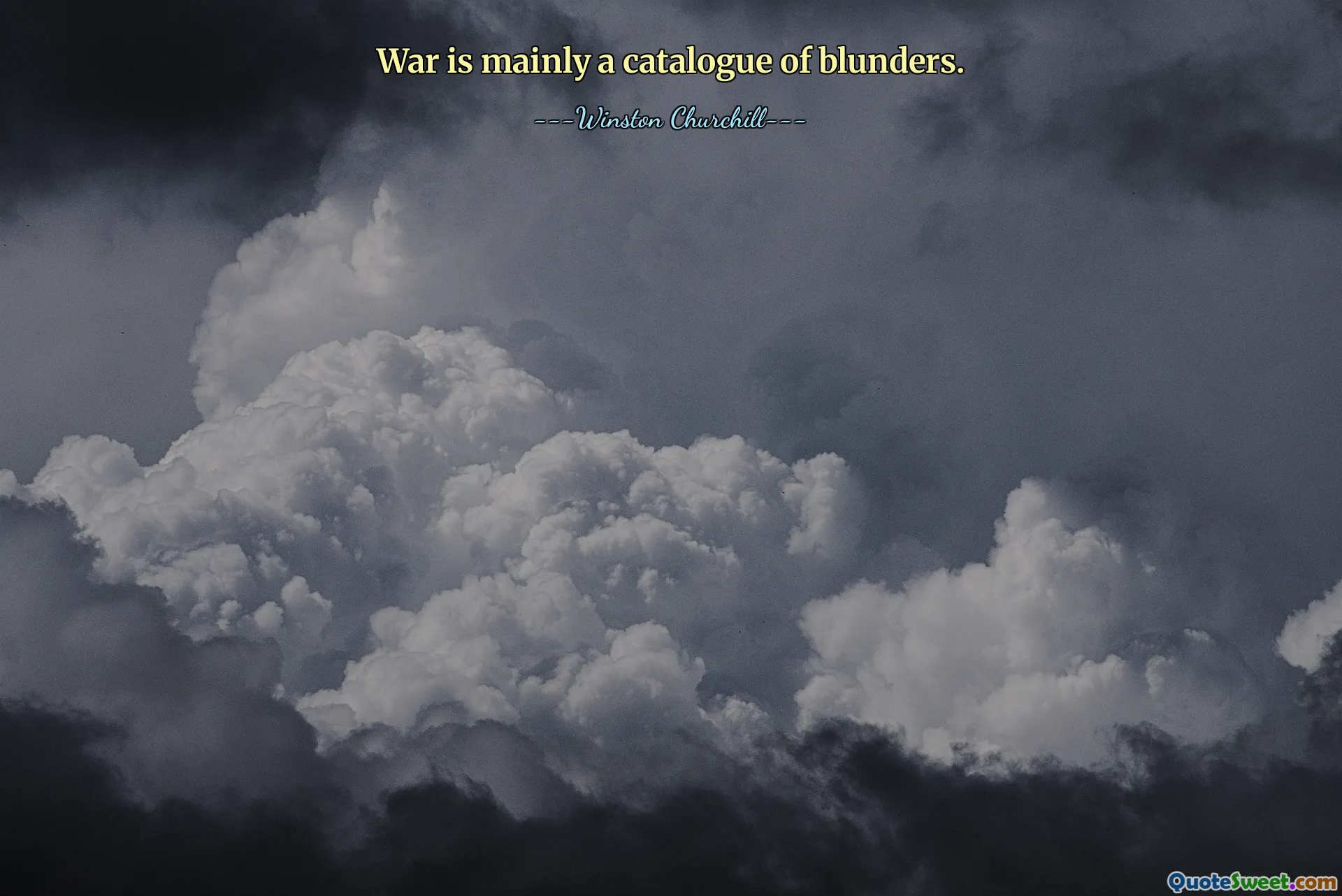
War is mainly a catalogue of blunders.
This quote by Winston Churchill succinctly captures the often tragic and absurd nature of warfare. Historically, conflicts have repeatedly demonstrated that many wars, despite their devastating consequences, are characterized by strategic misjudgments, miscommunications, and unintended consequences. Such blunders can escalate conflicts unnecessarily and prolong violence, ultimately costing more lives and resources than necessary. Recognizing that wars are riddled with errors shifts the focus from viewing them as inevitable or glorious endeavors to understanding their avoidable pitfalls. It encourages leaders and nations to seek diplomatic solutions and exercise caution before plunging into conflict, acknowledging that many acts of aggression are founded on miscalculations or poor judgment. In today’s context, this perspective remains profoundly relevant. Modern warfare, while technologically advanced, still bears the scars of human error—from flawed intelligence to faulty decision-making processes. The quote also invites reflection on the importance of learning from past mistakes, fostering transparency, and promoting peaceful coexistence to prevent conflicts from spiraling out of control. Ultimately, Churchill’s observation underlines that wars are often shaped by the imperfections and fallibilities of human nature. Recognizing these blunders provides an opportunity to prioritize negotiation over violence and to approach international relations with humility and a willingness to resolve differences through diplomacy rather than destructive conflict. Such an attitude could save lives and resources, making the understanding of war as a series of blunders a critical insight for policymakers, military strategists, and citizens alike.











